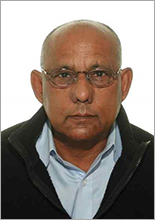Establishing Effective Water Tariff Policies in the Arab World
In recent years, given the population explosion in Arab countries, some of the major factors affecting governments’ water pricing policies include the governments’ obligation to provide affordable water supplies, the need to earn revenue to finance infrastructure in order to expand services, and governments’ emphasis on pro-poor policies. In almost all Arab countries, in absence of an independent regulator for the water sector, the government is both the service provider and regulator.
Water services in Arab countries vary widely, from the most modern municipal piped water supplies to public water points, yard taps and truck deliveries in urban and rural areas. Therefore, tariffs for water services should be different for different level of supply options. The major issue is whether the tariffs are rationalized for: cost recovery – which requires that consumers produce revenue equal to the financial cost of supply. Government policy of pro-poor subsidies can be transparent and embedded within the tariff structure; economic efficiency – where the volumetric charge should be set equal to the marginal cost of bringing one additional cubic meter of water to the customers’ demand centers; equity – whereby the tariff treats similar customers equally; affordability – acknowledging that water is the basic need for survival, providing water at minimal cost, at least to the poor; and simplicity and understandability – meaning that tariffs should avoid complexity and be easily understood by consumers, utilities, regulators and decision–makers.
Another major issue is whether tariffs are rationalized for sustainability of water services, irrespective of the socio-economic status of individual Arab citizens. A corollary issue is whether water tariffs are compromising water quality which has tremendous impact on health and quality of life. Tariffs and related subsidies can be formulated based on the various level of services available, infrastructure investment requirements and applicable annual indexation against inflation, exchange rate, foreign price index, and electricity tariffs. Billing, metering and revenue collection are major issues in most Arab countries. The challenge is non-payment by the poor of bills for public water points and yard taps. In some countries, pre-paid meters or cards are being introduced as an alternative to the public water points.
Finally, the financing of water infrastructure (water treatment plant, transmission and distribution pipes, and sewerage systems) in order to maintain and expand services poses a number of tariff-related issues. Since potable water is a basic human need, it should, therefore, be provided at the expense of the general public taxation process. However, others argue that water should be charged on a consumer-specific basis for three reasons: (1) not all taxpayers enjoy potable water; (2) water is used for commercial purposes; and (3) water resource conservation should be aided by a pricing mechanism.
Arab countries water tariffs vary widely by country from single-part tariffs that revolve around either fixed charges or water use charges, or two-part tariffs that employ a combination of both. Given the current and expected supply constraints, Arab governments would be well advised to reform their current systems for maximum rationalization given the hard choices that will need to be made.
Shibu B. Dhar provides consulting services to multilateral banks (The World Bank, Inter-American Bank, Asian Development Bank and European Development Bank), bilateral development agency, USAID and private infrastructure clients. He has extensive experience in the reform of water companies in the developing countries, including the management of regulation, the development of commercial targets, and performance management systems. His experience includes design of institutional frameworks, design and review of appropriate regulatory bodies in the water sector, which has been gained through assignments in Cape Verde, Zambia, Latvia, Vanuatu, Mongolia, India and USA.
